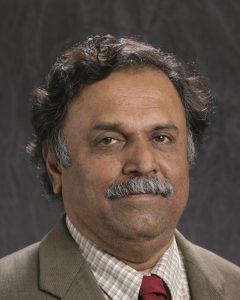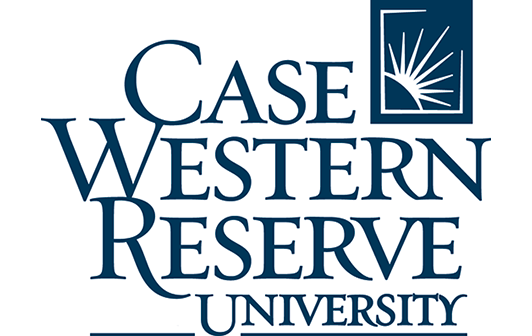Dr. S.S. Iyengar
Dr. S.S. Iyengar is currently a Distinguished University Professor and Founding Director of Discovery Lab at Florida International University. The Discovery Lab is a research infrastructure funded by various agencies focused on providing students (undergraduate/graduate) at FIU with a research experience into a wide variety of computer science domains. He served as the Director and was a Distinguished Ryder Professor of Computer Science at the Knight Foundation School of Computing and Information Sciences at Florida International University (FIU), Miami between 2011 and 2020. Prior to joining FIU, Dr. Iyengar was the Roy Paul Daniel’s Distinguished Professor and Chairman of the Computer Science department for over 20 years at Louisiana State University.


Dr. Brygg Ullmer
Brygg Ullmer is Chair of the Human-Centered Computing (HCC) Division and Professor within the School of Computing at Clemson University, where he also leads the Tangible Visualization group. Ullmer completed his Ph.D. at the MIT Media Laboratory (Tangible Media group) in 2002, where his research focused on tangible user interfaces. He served as an Associate Professor at Louisiana State University, jointly within the CCT and Computer Science. Prior to that, he held a postdoctoral position in the visualization department of the Zuse Institute Berlin, internships at Interval Research (Palo Alto) and Sony CSL (Tokyo), and has been a visiting lecturer at Hong Kong Polytechnic‘s School of Design. His research interests include tangible interfaces, computational genomics (and more broadly, interactive computational STEAM), visualization, and rapid physical and electronic prototyping. He also has a strong interest in computationally-mediated art, craft, and design, rooted in the traditions and material expressions of specific regions and cultures.
Dr. Youngjin Yoo
Youngjin Yoo, PhD, is the Elizabeth M. and William C. Treuhaft Professor of Entrepreneurship and professor of information systems in the Department of Design & Innovation at the Weatherhead School of Management, Case Western Reserve University. He is the faculty director of xLab. He is also a WBS Distinguished Research Environment Professor at Warwick Business School, UK, and a visiting professor at London School of Economics and Political Science, UK. He is an AIS Fellow.
Before returning to Case Western Reserve University, he was the Harry A. Cochran Professor of Management Information Systems and the founding director of the Center for Design+Innovation at the Fox School of Business, Temple University, where he was also the founder and principal investigator of Urban Apps & Maps Studios, an interdisciplinary initiative for digital urban entrepreneurship in Philadelphia. Previously, he was the Lewis-Progressive Chair of Management at Case Western Reserve University. He has taught digital innovation strategy at the Indian School of Business, Aalto University in Finland, and the Korean Advanced Institute of Science and Technology. He was a summer research fellow at NASA in the summer of 2001 and spent a year as a research associate in 2003-2004 at NASA Glenn Research Center. He was also a visiting professor at the Chalmers University of Technology in Sweden, Viktoria Institute in Sweden, Hitotsubashi University in Japan, Hong Kong City University, Yonsei University, Korea, and Tokyo University of Science, Japan. He was Innovation Architect at University Hospitals of Cleveland, overseeing the digital transformation efforts at one of the largest teaching hospital systems in the country.
Dr. Jonathan Lazar
Dr. Jonathan Lazar is a professor in the College of Information Studies (iSchool) at the University of Maryland. Dr. Lazar joined the iSchool in 2019, after 19 years as a professor of computer and information sciences at Towson University, where he served as director of the information systems program for 14 years. Dr. Lazar has authored or edited 13 books, including Research Methods in Human-Computer Interaction (2nd edition, co-authored with Heidi Feng and Harry Hochheiser), Ensuring Digital Accessibility Through Process and Policy (co-authored with Dan Goldstein and Anne Taylor), Disability, Human Rights, and Information Technology (co-edited with Michael Stein), Universal Usability: Designing Computer Interfaces for Diverse User Populations, and Web Usability: A User-Centered Design Approach. His 14th book, Accessible Technology and the Developing World, will be published by Oxford University Press in mid-2021. He has published over 150 refereed articles in journals, conference proceedings, edited books, and magazines, and has been granted two US patents for his work on accessible web-based security features for blind users. He frequently serves as an adviser to government agencies and regularly provides testimony at federal and state levels, and multiple US federal regulations cite his research publications. He has been on the executive Board of the Friends of the Maryland Library for the Blind and Physically Handicapped since 2009, was co-chair of the Cambridge University Workshop on Universal Access and Assistive Technology (CWUAAT) from 2012-2020, and has been on the program committee of the ACM Conference on Accessible Computing (ASSETS) most years since 2006. Dr. Lazar is the general chair of the ASSETS 2021 conference. Dr. Lazar is the associate director of the Trace Center and is a faculty member in the Human-Computer Interaction Lab
Dr. Rajiv Jain
Dr. Rajiv Jain is a Senior Research Scientist in the Document Intelligence Lab in Adobe Research, where his research focuses on understanding the layout, content, and interaction with documents. Prior to joining Adobe, Rajiv was a consultant at DARPA, where he helped establish the Media Forensics Program that worked toward securing digital imagery. He previously served for 10 years as a researcher for the Department of Defense where he works on projects around large scale systems, computer vision, and network security. He received his PhD in computer science from the University of Maryland, College Park.








